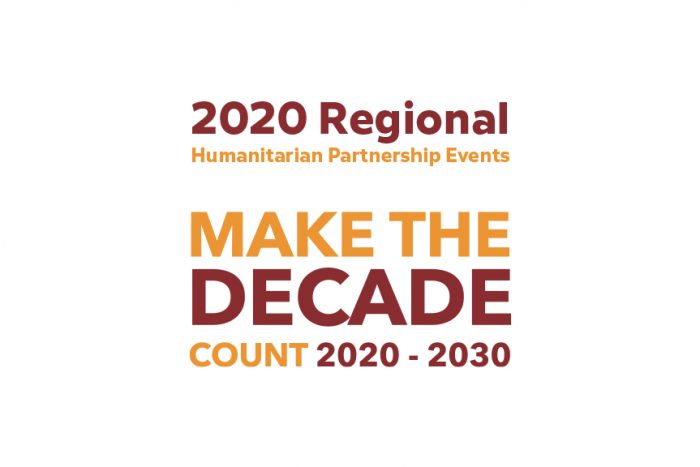Thematic Events: Safeguarding: Know – Act – Apply
When: 26th November, 2020
What time: 11:00AM to 12:30PM (Pakistan Standard Time)
Where: ZOOM – Link to be shared with registered participants – Register Here
Language: English
How long: 90 minutes
Who is it for: Humanitarian and development professionals, academics and UN staff committed to Quality and Accountability standards and approaches for principled actions
Format: Presentations, Discussion, Experience Sharing
Moderator & Presenter: Ms. Ester Dross
Background
The 2020 Regional NGO Partnership Events are a series of consultations and webinars, that will bring key humanitarian actors — local and national NGOs, INGOs, NGO networks, Red Cross and Crescent Movement, UN agencies, academics and others together for focused discussions and perspective sharing on how disaster risk reduction, emergency preparedness and humanitarian response should transform in this changing context. These events are organised collaboratively by the Asian Disaster Reduction and Response Network (ADRRN), International Council of Voluntary Agencies (ICVA), UN Office for Humanitarian Affairs (OCHA), and Community World Service Asia.
The 2020 Regional NGO Partnership Events will be an online learning and exchange journey of three months, starting with a consultative meeting on ‘the future of humanitarian response in Asia and the Pacific’, followed by various consultations and webinars, and a research that will produce a policy paper on the sector’s future in the region.
ADRRN’s Quality and Accountability (Q&A) thematic hub is hosted by Community World Service Asia. The focus of the hub is to strengthen principled humanitarian action in the region through promoting Q&A standards, approaches and principles among ADRRN members. The Q&A hub is organising webinars and panel discussions around different themes on Q&A during the 2020 Regional Partnership Events which will result in a position paper that will advocate for continuous mainstreaming of Q&A.
About the Event:
Safeguarding is a core component of our shared commitment to accountability towards affected populations. Keeping communities safe from additional harm, from sexual exploitation, abuse and harassment committed by our own staff is essential.
The webinar will build upon the on-going initiatives for community safeguarding and will explore the basic issues such as key definitions of safeguarding and setting standards as well as discussing the increased challenges due to the Covid-19 crisis and potential solutions.
Objectives of the webinar:
Our aim is to look at safeguarding and prevention from a different perspective:
- How can we communicate key messages around safeguarding more widely and adapted to traditional contexts?
- How can communities relate to our policies and increase understanding around this topic?
- How can efficient complaints handling and investigations contribute to prevention efforts and be a deterrent for inappropriate behaviour?
- What minimum requirements do we need to put in place to decrease the risks of Sexual Exploitation, Abuse and Harassment?
Moderator / Presenter:
 Ms. Ester Dross—Independent Consultant
Ms. Ester Dross—Independent Consultant
Ms. Dross is an independent consultant with over 25 years of experience, specializing in accountability, prevention of sexual exploitation and abuse, gender and child protection.
Ms. Dross had extensive exposure to humanitarian certification systems and accountability to affected populations while working with HAP International as their Complaints Handling and Investigation Advisor, later as their Certification Manager. She has been closely involved in the Building Safer Organizations Project since 2005, dealing with sexual exploitation and abuse of beneficiaries, particularly focusing on gender and child protection. Over the last 6 years and since working as an independent consultant, Ester has been leading a pilot project for FAO on accountability and gender mainstreaming in emergencies and working with numerous NGOs including ACT Alliance members, supporting and training their staff on gender issues, child protection, accountability, complaints handling and investigations. She is an experienced investigator herself and has conducted investigations in Asia, South America, Africa and Europe.
Register here for the Webinar on Safeguarding: Know – Act – Apply








